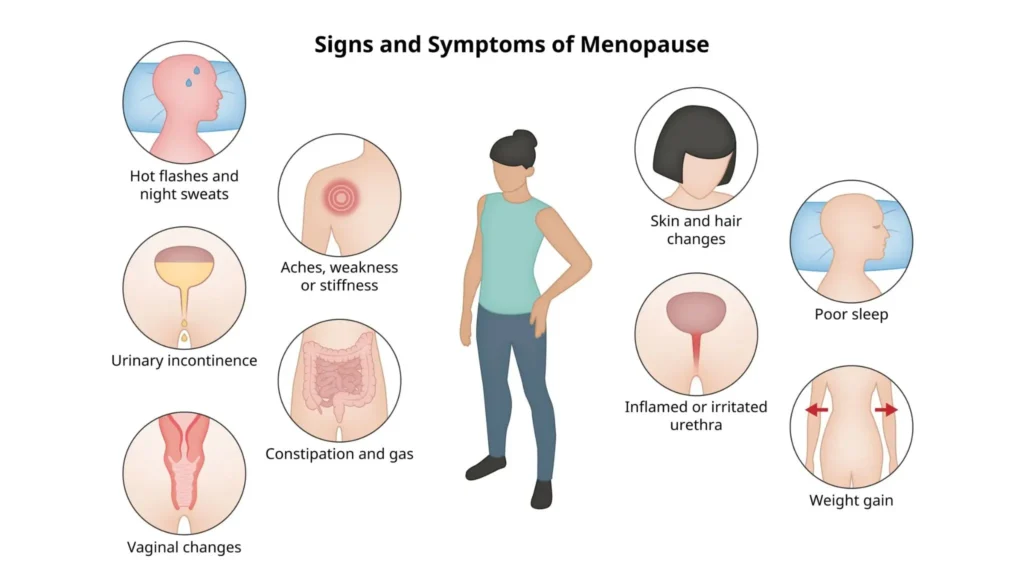
Menopause is a natural biological process that all women go through as they age. It is characterized by the cessation of menstruation and a decrease in hormone production, particularly estrogen and progesterone. Menopause typically occurs in women between the ages of 45 and 55, with the average age being 51.
During menopause, women may experience a range of symptoms, including hot flashes, night sweats, mood swings, fatigue, and vaginal dryness. These symptoms can be disruptive and distressing, leading many women to seek relief through various treatments and therapies. In recent years, there have been significant advancements in the understanding and treatment of menopausal symptoms, leading to breakthroughs in menopause relief.
Clinical studies have played a crucial role in advancing our knowledge of menopause and developing effective treatments for its symptoms. These studies have provided valuable insights into the underlying causes of menopausal symptoms and have helped identify new approaches to managing them. In this article, we will explore the latest findings from clinical studies on menopause relief and discuss the most promising treatments currently available.
Hormone Replacement Therapy (HRT) has long been considered the gold standard for treating menopausal symptoms. HRT involves taking estrogen or estrogen and progesterone to replace the hormones that are no longer being produced by the ovaries. While HRT can be highly effective in relieving symptoms such as hot flashes and vaginal dryness, it is not without risks. Studies have shown that long-term use of HRT may increase the risk of certain health conditions, including breast cancer, heart disease, and stroke.
As a result, many women are now turning to alternative treatments for menopausal symptoms. One of the most promising approaches is the use of natural remedies and supplements. Clinical studies have shown that certain herbs and plant-based compounds, such as black cohosh, soy isoflavones, and red clover, may help alleviate menopausal symptoms without the risks associated with HRT. These natural remedies work by mimicking the effects of estrogen in the body, helping to balance hormone levels and reduce the severity of symptoms.
In addition to natural remedies, lifestyle changes can also play a significant role in managing menopausal symptoms. Regular exercise, a healthy diet, and stress-reducing techniques such as yoga and meditation have been shown to help alleviate hot flashes, mood swings, and other menopausal symptoms. Clinical studies have also demonstrated the benefits of acupuncture and mindfulness-based therapies in reducing the frequency and severity of menopausal symptoms.
Another breakthrough in menopause relief is the development of novel therapies targeting specific symptoms. For example, a new class of drugs known as selective estrogen receptor modulators (SERMs) have been shown to effectively reduce hot flashes and night sweats without increasing the risk of cancer or other health issues associated with traditional HRT. Other innovative treatments, such as vaginal estrogen creams and hormone-releasing intrauterine devices, offer targeted relief for symptoms such as vaginal dryness and discomfort during intercourse.
Despite these advancements, many women still have questions about menopause relief and the best ways to manage their symptoms. To address some of the most common concerns, we have compiled a list of frequently asked questions about menopause and its treatment:
1. What are the most common symptoms of menopause?
Menopause can cause a wide range of symptoms, including hot flashes, night sweats, mood swings, fatigue, vaginal dryness, and changes in libido. These symptoms can vary in severity and duration from woman to woman.
2. What are the risks and benefits of hormone replacement therapy?
HRT can be highly effective in relieving menopausal symptoms, but it is not without risks. Long-term use of HRT may increase the risk of breast cancer, heart disease, and stroke. It is essential to discuss the risks and benefits of HRT with your healthcare provider before starting treatment.
3. Are natural remedies and supplements safe and effective for menopause relief?
Many natural remedies and supplements have been shown to help alleviate menopausal symptoms, but their safety and efficacy vary. It is essential to consult with a healthcare provider before using any herbal or dietary supplements to ensure they are safe and appropriate for your individual needs.
4. What lifestyle changes can help manage menopausal symptoms?
Regular exercise, a healthy diet, and stress-reducing techniques such as yoga and meditation can help alleviate menopausal symptoms. Maintaining a healthy lifestyle can also reduce the risk of other health conditions associated with menopause, such as osteoporosis and heart disease.
5. What are the latest breakthroughs in menopause relief?
Recent advancements in menopause relief include the development of novel therapies targeting specific symptoms, such as selective estrogen receptor modulators (SERMs) and hormone-releasing intrauterine devices. These innovative treatments offer targeted relief for menopausal symptoms without the risks associated with traditional HRT.
In conclusion, menopause is a natural and inevitable part of a woman’s life, but it does not have to be a time of suffering. Thanks to the latest findings from clinical studies, there are now more options than ever for managing menopausal symptoms and improving quality of life. Whether through hormone replacement therapy, natural remedies, lifestyle changes, or innovative treatments, women can find relief from the challenges of menopause and embrace this new phase of life with confidence and vitality.